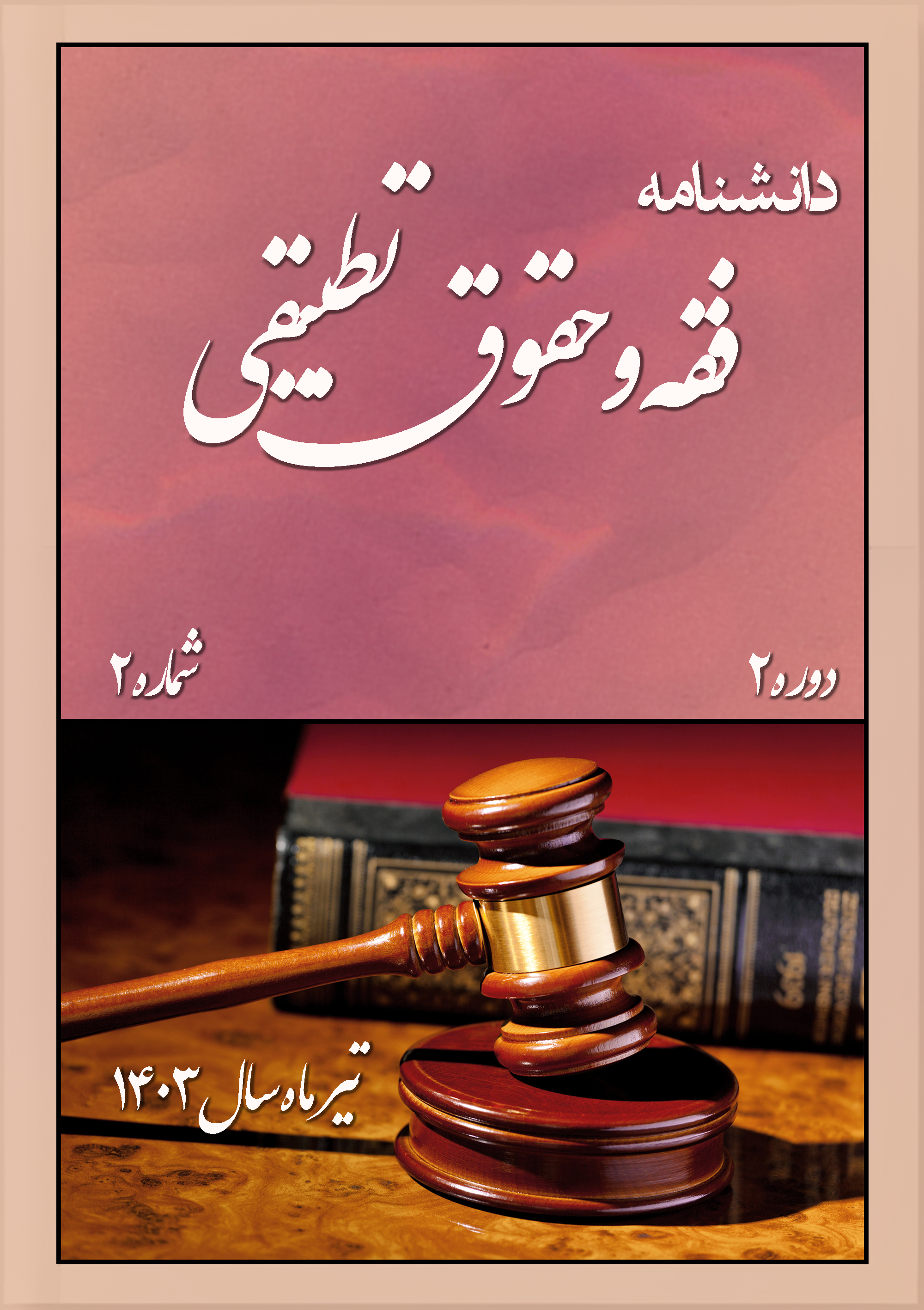The Receiver of Goods for Trial (Akhidh bi’l-Sawm) and the Legal Enforcement of Liability in Islamic Jurisprudential Schools and Iranian Law
Keywords:
Akhezbalsum, responsibility, trust, surety, usurpation, trusteeAbstract
The term Akhidh bi’l-Sawm refers to a person who receives a good from its owner for the purpose of inspection or trial with the intent of possibly purchasing it upon satisfaction. The primary legal issue concerning the Akhidh bi’l-Sawm is determining the type of liability incurred if the good is damaged or lost without negligence or misconduct. Within Imamiyyah jurisprudence, two primary views are presented. One group considers the possessor’s hand (yad) as a trust-based possession (yad amaniyyah), thereby limiting liability to cases of misconduct or negligence, on the basis that the owner has granted conditional permission for possession. Conversely, another group holds that the yad is liability-based (yad damaniyyah), assigning absolute responsibility to the possessor. They rely on the legal maxim "Upon the hand is what it takes until it returns it" (‘ala al-yad ma akhadat hatta tu’addih), indicating liability even in the absence of fault. This divergence stems from different interpretations of prophetic traditions and the extent of the owner’s authorization. Other Islamic legal schools also present varied opinions regarding the liability of the Akhidh bi’l-Sawm. In the Maliki school, such possession is deemed unauthorized, and absolute liability is imposed. The Shafi’i and Hanbali schools similarly assign absolute liability, likening the possession to usurpation (ghasb). The Hanafi school includes liability for both the goods and their benefits, regardless of intent or negligence. Under Iranian law, the Civil Code does not categorize the Akhidh bi’l-Sawm as a trustee (amin), and his liability is typically contingent on either returning the goods intact or compensating for their value. Article 631 of the Civil Code restricts the instances qualifying as trusteeship, and the Akhidh bi’l-Sawm is not among them. The owner grants conditional permission, requiring either safe return of the item or payment of its value, thus placing the possessor's liability between limited and absolute. Ultimately, the concept of Akhidh bi’l-Sawm remains a jurisprudential and legal point of contention, significantly impacting contractual relationships and commercial dispute resolution. A precise understanding of this concept is essential for legal scholars and practitioners.
Downloads
References
Al-Bahuti, M. i. Y. i. I. (1993). Kashaf al-Qina’ ‘an Matn al-Iqna’ (Vol. 4). Dar al-Kutub al-Ilmiyyah.
Al-Kasani, A. a. D. (1985). Bada’i al-Sana’i fi Tartib al-Shara’i (Vol. 7). Dar al-Kutub al-Ilmiyyah.
Al-Muradi, A. i. A. Al-Insaf fi Ma'rifat al-Rajih min al-Khilaf (Vol. 6). Dar Ihya al-Turath al-Arabi.
Al-Qurtubi, M. i. A. (1953). Al-Jami’ li-Ahkam al-Quran (Vol. 4).
Al-Sarakhsi, M. i. A. (1985). Al-Mabsut (Vol. 12). Dar al-Ma’arifah.
Al Marghinani. Al-Hidayah (Vol. 4).
Bayat. (2012). Comparative Study of Akhdh bil-Sawm in Iranian Law and Western Legal SystemsER.
Davoudabadi, M. Explanation of Article 301 of Civil Law. In.
Emami, S. H. (1996). Civil Law (Vol. 1). Islamieh Publications.
Ghasemzadeh, S. M., & Khosravi Farsani, A. (2006). Civil Liability of Akhdh bil-Sawm in Jurisprudence and Civil Law. Legal Perspectives Quarterly(40), 59-72.
Ibn Qudamah, a. M. (1984). Al-Sharh al-Kabir (Vol. 5).
Imam Khomeini, S. R. (1987). Sahifeh Imam (Vol. 2).
Jafari Langeroudi, M. J. (2016). Legal Terminology (Vol. 1). SAMT Publications.
Jafari Langeroudi, M. J. (2024). Liability of Akhdh bil-Sawm in Imamiyyah Jurisprudence, Civil Law, and Iranian Legal Theories. Ensani Research Website, 27-40.
Katouzian, N. (1998). Civil Law: Specific Contracts (Vol. 1). Mizan Publications.
Khansari, S. M. H. (1984). Jami’ al-Madarik fi Sharh Sharayi’ al-Islam (Vol. 4). Dar al-Kutub al-Islamiyyah.
Malik ibn, A. (1994). Al-Muwatta’. Dar Ihya al-Turath al-Arabi.
Najafi, S. M. H. N. (1983). Jawahir al-Kalam fi Sharh Sharayi’ al-Islam (Vol. 37). Publications of the Society of Teachers of Qom, Dar Ihya al-Turath al-Arabi (Beirut), and Islamieh Publications (Tehran).
Nawawi, Y. i. S. Al-Sharh al-Nawawi 'ala Sahih Muslim (Vol. 5).
Sadri. (2011). Liability of Akhdh bil-Sawm in Imamiyyah Jurisprudence, Civil Law, and Iranian Legal Theories. Legal Quarterly, 27-40.
Shabani Kaldareh, A. (2021). Criminal Liability of Akhdh bil-Sawm for Intentional Destruction of Akhdh bil-Sawm. 4th International Congress on Interdisciplinary Research in Islamic Humanities, Jurisprudence, Law, and Psychology, Tehran.
Shahid Thani, M. i. A. B. a. U. (1989). Al-Durr al-Manthur fi Tafsir bil-Ma’thur (Vol. 3).
Shahram. (2014). Study of Akhdh bil-Sawm in Iranian Law (General Reference).
Downloads
Published
Submitted
Revised
Accepted
Issue
Section
License
Copyright (c) 1403 حمید وفائی (نویسنده); هرمز اسدی کوهباد; مهدی زمانی (نویسنده)

This work is licensed under a Creative Commons Attribution-NonCommercial 4.0 International License.










